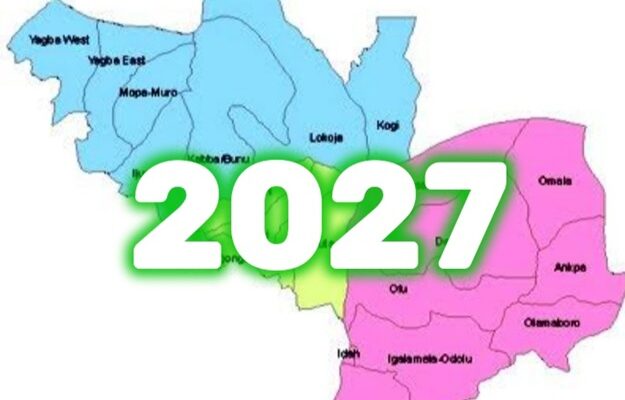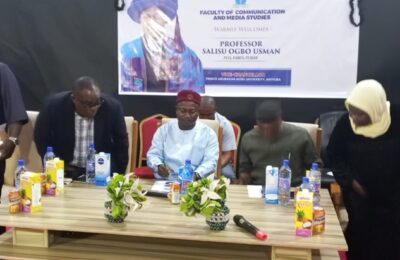In the often-bizarre theatre of Nigerian politics, Kogi State is currently providing a curious spectacle: a strident, premature endorsement frenzy for a second term for Governor Alhaji Ahmed Usman Ododo, who is barely a year into his first term. This clamour, critics argue, is less about a stellar performance review and more about a palpable desperation among political appointees to safeguard their jobs and continue their access to patronage.
Nigeria, with its peculiar political culture, is known for this brand of sycophancy. However, the intensity of the calls emanating from Kogi has drawn sharp commentary, painting a picture of political hustlers on the rampage for survival.
Governor Ododo has, since assuming office, projected an image of a leader consolidating on the “New Direction” agenda of his predecessor. His supporters and the state government’s official channels have been quick to point to various achievements, including enhanced worker welfare, infrastructure development, and improved security. They credit him with displaying a solid grasp of governance.
However, a vocal opposition remains unconvinced. Critics often argue that the “spectacular performance” narrative is exaggerated, particularly when set against the backdrop of an enhanced inflow of federal allocations, which, they suggest, should naturally translate to more visible projects.
A significant element of this Kogi frenzy is the strategic inclusion of President Bola Ahmed Tinubu’s second-term endorsement in the group’s communiqués. This simultaneous declaration is widely seen as an insurance policy—a calculated political move designed to exhibit unwavering loyalty to the President and the national ruling party, the All Progressives Congress (APC).
Political analysts suggest that by inextricably linking Governor Ododo’s local continuity bid with the President’s national political future, the endorsement groups are effectively seeking to earn favour and protection from the central power structure. In the murky waters of Nigerian politics, loyalty to Abuja often translates to guaranteed state-level support and the attraction of federal goodwill, including key appointments for state indigenes.
The early, loud push for a 2027 second term for both leaders has led to probing questions about the true motivations of the groups involved. For a political system traditionally resistant to rocking the boat, this pre-emptive move is widely interpreted as a survival tactic by the governor’s inner circle and an army of political appointees.
“Can these people truly say the Governor’s performance, in under two years, unequivocally deserves another term?” a prominent political analyst questioned, speaking under the condition of anonymity. “It is a rhetorical question. Their action reeks of self-preservation, and including the President is simply a way to butter their bread with the central government.”
The current Kogi State governance structure is reportedly bloated, particularly in the ranks of Special Advisers (SAs) and Senior Special Assistants (SSAs). This sheer number has led to the unfortunate reality of some of the lowest paycheck rates for such positions nationwide. With limited or no physical offices for many, the principal means of displaying loyalty and earning their keep has become extravagant public endorsements, media blitzes, and unbridled sycophancy.
“The team is composed mainly of individuals whose primary, and perhaps sole, concern is the consistency of credit alerts to their accounts,” another observer noted. “Maintaining the status quo beyond 2027 is their only guarantee to keep those jobs, regardless of actual public service delivery.”
What makes the endorsement jamboree particularly jarring to many is the timing. Even as the state government claims significant strides in security, reports of banditry and other security challenges persist in parts of the state.
To launch a major political spectacle and a frenzy of second-term endorsements while communities are still grappling with security threats is seen by critics as a flagrant display of the self-serving and desperate nature of these political ‘hustlers.’ It suggests a clear prioritisation of political ambition and personal gain over the immediate, pressing needs of the populace.
In Kogi, the political hustler is currently on full display: a breed of operative who views political tenure not as a service but as an economic opportunity, where the loudest declarations of loyalty—both local and national—are the surest path to sustained patronage and a guaranteed paycheck. As 2027 looms, this endorsement frenzy will undoubtedly continue, setting a curious, if predictable, tone for governance in the Confluence State.
– Ponle Adeniyi
ponleadeniyi457@gmail.com




